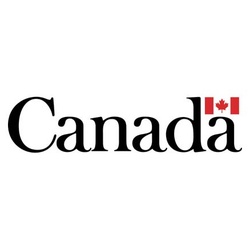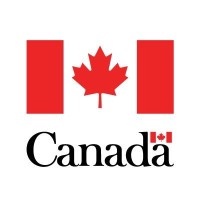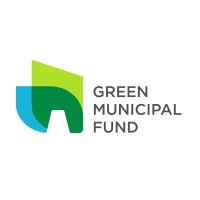
Open
Manufacturing and processing profits deduction and zero-emission technology manufacturing deduction
Last Update: October 27, 2025
Canada
Corporate tax reduction for Canadian manufacturing and zero-emission technology
Tax Credits
At a glance
Funding available
Financing goals
Reduce the ecological footprint
Eligible Funding
- Up to 13% of project cost
Timeline
- Unspecified
Eligible candidates
Eligible Industries
- Utilities
- Manufacturing
Location
- Canada
Legal structures
- For-profit business
Annual revenue
- $ 200,000 maximum revenue
Organisation size
- All organization sizes
Audience
- Canadians
Overview
The Manufacturing and Processing Profits Deduction and Zero-Emission Technology Manufacturing Deduction provide eligible Canadian corporations with significant tax reductions on manufacturing and processing income, including reduced tax rates as low as 4.5% for small businesses and 7.5% for other corporations engaged in qualified zero-emission technology manufacturing. This program supports activities such as manufacturing energy conversion equipment, air-source heat pumps, zero-emission vehicles, and certain nuclear energy components, aiming to incentivize clean technology and advanced manufacturing in Canada.
Activities funded
- Manufacturing or processing goods in Canada for sale or lease.
- Production of zero-emission technology, including energy conversion equipment such as solar, wind, water, and geothermal equipment.
- Manufacturing of air-source heat pumps used for space or water heating.
- Manufacturing activities related to zero-emission vehicles, including production of vehicles, batteries, and charging stations.
- Nuclear manufacturing and processing activities, including manufacturing of nuclear energy equipment, processing or recycling of nuclear fuels and heavy water, and manufacturing of nuclear fuel rods.
Examples of admissible projects:
$ 1,200,000
Producing components for small modular nuclear reactor facilities
$ 730,000
Manufacturing EV charging stations for public transit infrastructure
$ 495,000
Upgrading facility to manufacture commercial air-source heat pumps
Eligibility
- The applicant must be a corporation deriving at least 10% of its gross revenue from manufacturing or processing goods in Canada for sale or lease.
- Eligible activities include manufacturing of energy conversion equipment, air-source heat pumps, zero-emission vehicles or related technology, and certain nuclear manufacturing and processing activities (for tax years starting after 2023).
- To qualify as a small manufacturing corporation, the majority of activities during the year must be manufacturing or processing, and total active business income (including associated Canadian corporations) must not exceed $200,000.
- The corporation must not engage in activities specifically excluded from manufacturing and processing, such as farming, fishing, logging, construction, resource extraction, etc.
- The corporation must not carry on any active business outside Canada during the tax year.
Who is eligible?
- Corporations involved in manufacturing or processing goods in Canada for sale or lease
- Corporations engaged in manufacturing of energy conversion equipment (e.g., solar, wind, water, and geothermal equipment)
- Corporations manufacturing air-source heat pumps for space or water heating
- Corporations involved in zero-emission vehicle manufacturing, including vehicle, battery, and charging station manufacturing
- Corporations conducting nuclear energy equipment manufacturing, nuclear fuel processing or recycling, or manufacturing of nuclear fuel rods (for tax years starting after 2023)
Who is not eligible
- Companies primarily engaged in farming, fishing, logging, or construction.
- Businesses involved in operating oil or gas wells or extracting petroleum or natural gas.
- Corporations extracting minerals or processing ore and producing industrial minerals.
- Companies carrying on any active business activities outside Canada during the year.
Eligible geographic areas
- Corporations operating in Canada
How to apply
1
Verify eligibility criteria
- Ensure at least 10% of your corporation's gross revenue comes from eligible manufacturing or processing activities in Canada
- Confirm your corporation meets all eligibility criteria for the MPPD or zero-emission technology deduction
- Verify if activities include the production of qualified zero-emission technologies, vehicles, batteries, or related components
2
Determine calculation method
- Determine if your corporation qualifies as a small manufacturing corporation based on activity and income limits
- Identify the correct methodology for calculating your deduction (simplified for small corporations or detailed formula for others)
3
Collect necessary documentation
- Gather your detailed financial records, including business income, expenses, and eligibility breakdowns
- Prepare all supporting documents regarding manufacturing activities and zero-emission technology production
4
Complete Schedule 27 form
- Complete Schedule 27 using the determined calculation method (Part 1 for small corporations, Parts 2 or 14-17 as applicable for others)
- Ensure each section relevant to your corporation's activities is accurately filled
5
Validate application and documentation
- Double-check all entered information and supporting documents for accuracy and completeness
- Review calculations and eligibility proofs
6
Transfer deduction to tax return
- Enter the deduction amounts as determined in Part 9 of Schedule 27 on line 616 of your corporate tax return
- Ensure all required forms are attached and ready for submission
7
Submit the application
- Submit your corporate income tax return with Schedule 27 and all relevant documents to the Canada Revenue Agency
- Retain copies of your submission for your records
Additional information
- The manufacturing and processing profits deduction (MPPD) and zero-emission technology manufacturing deduction are both calculated using Schedule 27 of the tax return.
- Different methods are available for calculating eligible profits depending on the corporation’s size and type (small manufacturing corporations vs. others), as outlined in Schedule 27.
- The temporary reduced tax rates for zero-emission technology manufacturers will gradually be phased out from 2032 and completely ended for tax years beginning after 2034.
- Definitions of eligible manufacturing activities and exclusions are specifically set out in relevant subsections of the Income Tax Act (125.1(3) and 125.2(2)).
Apply to this program
Frequently Asked Questions about the Manufacturing and processing profits deduction and zero-emission technology manufacturing deduction Program
Here are answers to the most common questions about the Manufacturing and processing profits deduction and zero-emission technology manufacturing deduction. This section explains what the program is, how much funding is available, eligibility requirements, application deadlines, and other important details to help you determine if this grant is right for your business.
What is the Manufacturing and processing profits deduction and zero-emission technology manufacturing deduction?
How much funding can be received?
What expenses are eligible under Manufacturing and processing profits deduction and zero-emission technology manufacturing deduction?
What is the deadline to apply?
Is the Manufacturing and processing profits deduction and zero-emission technology manufacturing deduction a grant, loan, or tax credit?
Who are the financial supporters of the Manufacturing and processing profits deduction and zero-emission technology manufacturing deduction?
Who is eligible for the Manufacturing and processing profits deduction and zero-emission technology manufacturing deduction program?
Who can I contact for more information about the Manufacturing and processing profits deduction and zero-emission technology manufacturing deduction?
Where is the Manufacturing and processing profits deduction and zero-emission technology manufacturing deduction available?
Apply to this program
More programs like this

Grant and FundingClosed
Industrial Research Assistance Program (IRAP) – AI Assist
National Research Council Canada (NRC)Supports Canadian SMEs in adopting and integrating advanced AI solutions

Tax CreditsOpen
Clean Technology Manufacturing (CTM) Investment Tax Credit (ITC)
Canada Revenue Agency (CRA)Incentivize Canadian companies to invest in clean technology

Partnering and CollaborationGrant and FundingOpen
Strategic Innovation Fund (SIF)
Innovation, Science and Economic Development Canada (ISED)Strategic Innovation Fund supports transformative Canadian economic investments

Grant and FundingClosed
ISED — Artificial intelligence (AI)
Innovation, Science and Economic Development Canada (ISED)Supports testing innovative AI prototypes for Canadian government needs

Grant and FundingOpen
Global Innovation Clusters
Innovation CanadaFinancial assistance to work in collaboration on innovation projects

Grant and FundingClosed
Green Industrial Facilities and Manufacturing Program — Energy Efficiency Solutions Track
Natural Resources Canada (NRCan)Support for industrial energy efficiency in Canada

Wage Subsidies And InternsOpen
TECHNATION — Career Ready Program
TECHNATIONWage subsidy for developing tech talent

Other SupportGrant and FundingClosed
Artificial Intelligence for Canadian Energy Innovation
Natural Resources Canada (NRCan)Supports AI-driven solutions accelerating Canadian energy technology innovation

Grant and FundingLoans and Capital investmentsOpen
Capital project: Community Energy Systems
Green Municipal Fund (GMF)Funding to build and deploy renewable community energy systems

Wage Subsidies And InternsOpen
Developing the next generation for skilled trades in advanced manufacturing
Excellence in Manufacturing Consortium (EMC)Subsidizes employer-led training placements for youth in advanced manufacturing
Sign up to our platform to access the Manufacturing and processing profits deduction and zero-emission technology manufacturing deduction information sheet for free
Get access to 4,000+ programs, practical guides, personalized alerts, and an AI assistant to support your grant applications.